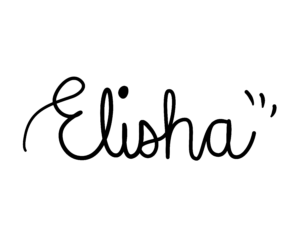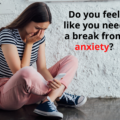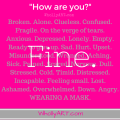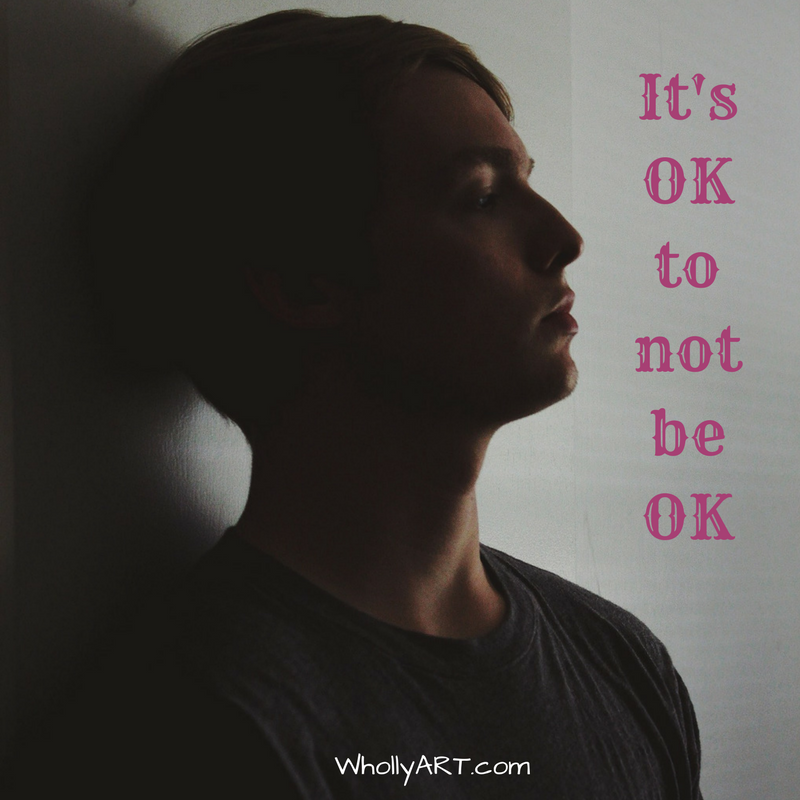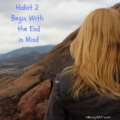3 Easy Stress and Anxiety Coping Skills Worksheets for Teens (Free PDFs)
Happy new school year!
As we begin another year of routine, homework, and change, a lot of big emotions can start to surface—excitement and joy, but you could also be feeling nervous…or maybe even experiencing anxiety.
I’m in my senior year (it’s crazy how time flies) and the responsibilities, assignments, and interacting with people is already stressing me out. As teens and young adults, we are already dealing with so much, and it can be so hard to cope when it seems like you’re all alone.
I’ve been there, and you’re in the right place. That’s why I want to give you some mental health worksheets with valuable coping skills that can help you healthily work through these emotional states.
Before we talk about anxiety coping skills, you might be wondering if you’ve ever experienced anxiety or if you understand what anxiety is in the first place. Let’s talk about it!
What is Anxiety?
According to the Mayo Clinic, anxiety consists of having “intense, excessive and persistent worry and fear about everyday situations.”
These everyday situations could include talking to new people or being in crowds, taking a test or quiz, presenting in front of your class, or even something as simple as ordering food—I often rehearse what I want several times before I order to help myself calm down.
Who gets Anxiety?
Everyone! Feeling anxiety every so often is a normal part of life. You may hear people use the terms “nervous” or having “stomach butterflies” in reference to these moments of anxiety.
Having an anxiety disorder, however, disrupts your life and daily activities. If you have an anxiety disorder, anxious thoughts or panic become difficult and out of control, making you feel like you are in danger, even if you aren’t. You may even avoid places, people, or different situations to prevent these feelings.
Usually, the symptoms associated with anxiety disorders begin in childhood or teen years and continue into adulthood.
Anxiety disorders can also involve episodes of intense and sudden fear or terror, called panic attacks. Panic attacks usually come out of nowhere and can result in severe physical reactions.
I was officially diagnosed with an anxiety disorder a couple years ago, and it’s taken me time, self-compassion, and patience to understand that there is no shame in it. I was really scared when I started having panic attacks when I was younger and didn’t know what to call it or what was going on.
Thankfully, since my mom also struggles with anxiety, I was able to talk to her about it and we have compared notes on what situations cause us anxiety, how we calm and soothe ourselves during panic attacks, and provide support to each other through our experiences.
How do I know if I have Anxiety?
First of all, I want to clarify that I am not a trained medical professional, and I speak from my own experience with an anxiety disorder. If you suspect that you might be struggling with an anxiety disorder, talk to your parents about seeing a doctor or mental health practitioners.
There are many different symptoms of anxiety, and some types of anxiety vary among different people and experiences (like social anxiety, for example). These are just a few of the things you might experience when you have anxiety:
- Nervousness or restlessness
- Feeling tense
- Increased heart rate or chest pressure
- Hyperventilation (breathing more rapidly than usual)
- Sweating or chills
- Body trembling
- An impending sense of doom or danger
- Worrying so much you can’t concentrate or think about anything else
- Difficulty controlling your worries or your thoughts racing
- Being more tired than usual or feeling weak
- Trouble sleeping (like insomnia or nightmares)
- Feeling an urge to avoid things that trigger anxiety or panic attacks
Why Worksheets Can Help
One creative way I’ve been able to work on my anxiety is through focusing on worksheets to process the complex emotions that surface when I’m having a panic attack or otherwise feeling anxious!
Developing coping skills (healthier ways you can divert your attention from your anxiety) has helped me calm down when I’m anxious.
Of course, coping skills don’t necessarily fix everything, and if you have particularly difficult symptoms or issues, I recommend talking to a doctor or therapist. But coping skills can support you in developing habits to combat your anxiety!
I designed 3 free resources that you can use to work through stress and anxiety. Have you ever heard of the fight, flight, and freeze responses? Each worksheet is a helpful tool that connects to a human response and will help you navigate adverse events and strong emotions.
The fight response corresponds to worksheet #3, where we’ll discuss specific coping skills you can use to fight against anxiety.
The flight response is explored in worksheet #1, which will help you assess your emotions and distance yourself from the cause of your anxiety.
Finally, the freeze response connects to worksheet #2, focusing on pausing yourself and pacing your thoughts.
I explain each worksheet in detail so you not only know what it is but also how it can help, and then you can click the links to download a printable version. I’ll also provide other suggestions and tips that you can use along with these emotions worksheets.
Let’s get into it!
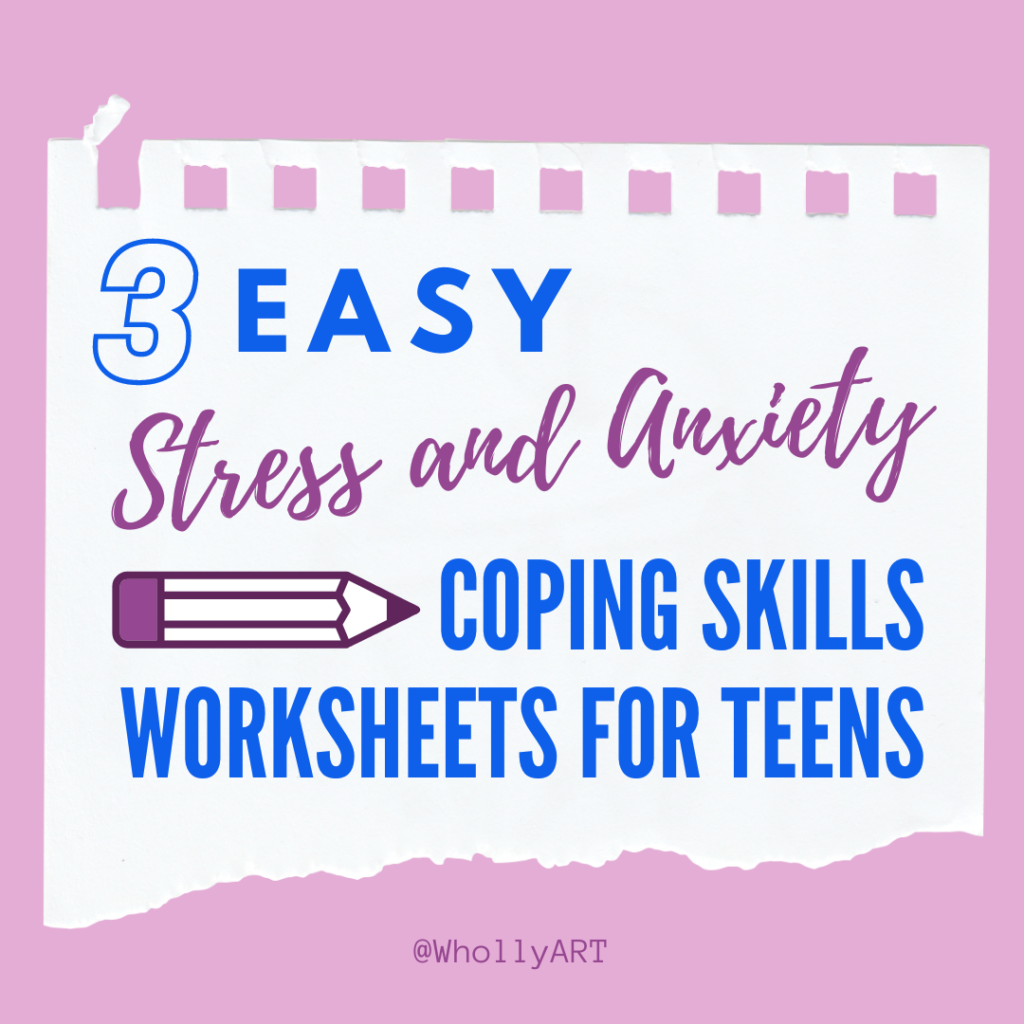
Worksheet 1: Feelings Inventory
While there are so many words to describe how we’re feeling, the five main emotions are: Happy, Sad, Mad, Hurt, and Scared. From these five emotions stem others like disgust, love, and yes, even anxiety.
I’ve found that my anxiety exists when you combine hurt and scared together. Being able to pinpoint why I feel hurt and why I feel scared has been an important part in helping me understand my anxiety.
The Feelings Inventory is a great tool to help you recognize, validate, and understand your anxiety.
The first step to coming up with a plan to regulate your emotions is to give a name to what you are feeling, beyond the word anxiety, and know where it’s coming from.
First, you’ll make a feelings list of words that describe how you’re feeling.
Then you’ll describe what you are feeling, including any anxiety symptoms you are feeling mentally or physically.
Finally, you can explore why you are feeling this way: does it have to do with your surroundings? Does it have to do with a situation (real or imagined)?
DOWNLOAD the Feelings Inventory here
Worksheet 2: Anxiety Journal Prompts
Whenever I’m having a panic attack, I notice that I do not feel present, and I certainly don’t feel grounded. A helpful and valuable tool for me has been using writing and journaling as a way to slow down and realize what is happening.
These journal prompts are meant to dive into self-love, identifying what worries you’d like to let go of, what you love about yourself, and making a small gratitude list to divert your focus from the anxiety you’re feeling. There is also a space where you can affirm yourself and assure yourself by writing some positive affirmations or statements that can help you accept what you are feeling. I recommend finding a quiet environment to journal, and of course, you can keep these prompts in a binder or notebook for safekeeping.
DOWNLOAD the Anxiety Journal Prompts here
Worksheet 3: 21 Coping Mechanisms
I mentioned before how coping skills can help distract you from your worries or the cause of your anxiety, so naturally one of the coping skills worksheets gives you 21 ideas on how to cope whenever you feel anxious. I’ve used all 21 of these to slow down my thoughts, become more present, and calm me down.
Here are all 21:
- Try some breathing techniques
- Draw
- Listen to music
- Hold an ice cube (and watch it melt)
- Take a warm shower
- Sit in the sun
- Drink hot tea
- Do yoga
- Read a book
- Go for a walk
- Dance
- Write a poem
- Knit or sew
- Count backwards from 100
- Scribble—as messy as you can!
- Text or call your friends
- Hug a pillow
- Do a puzzle
- Make a gratitude list
- Organize your space
- Let yourself cry, because we all need a good cry sometimes
The printable worksheet is a weekly checklist so you can keep track of what you’ve done! I love checklists, they make me feel productive and it’s satisfying to check something off.
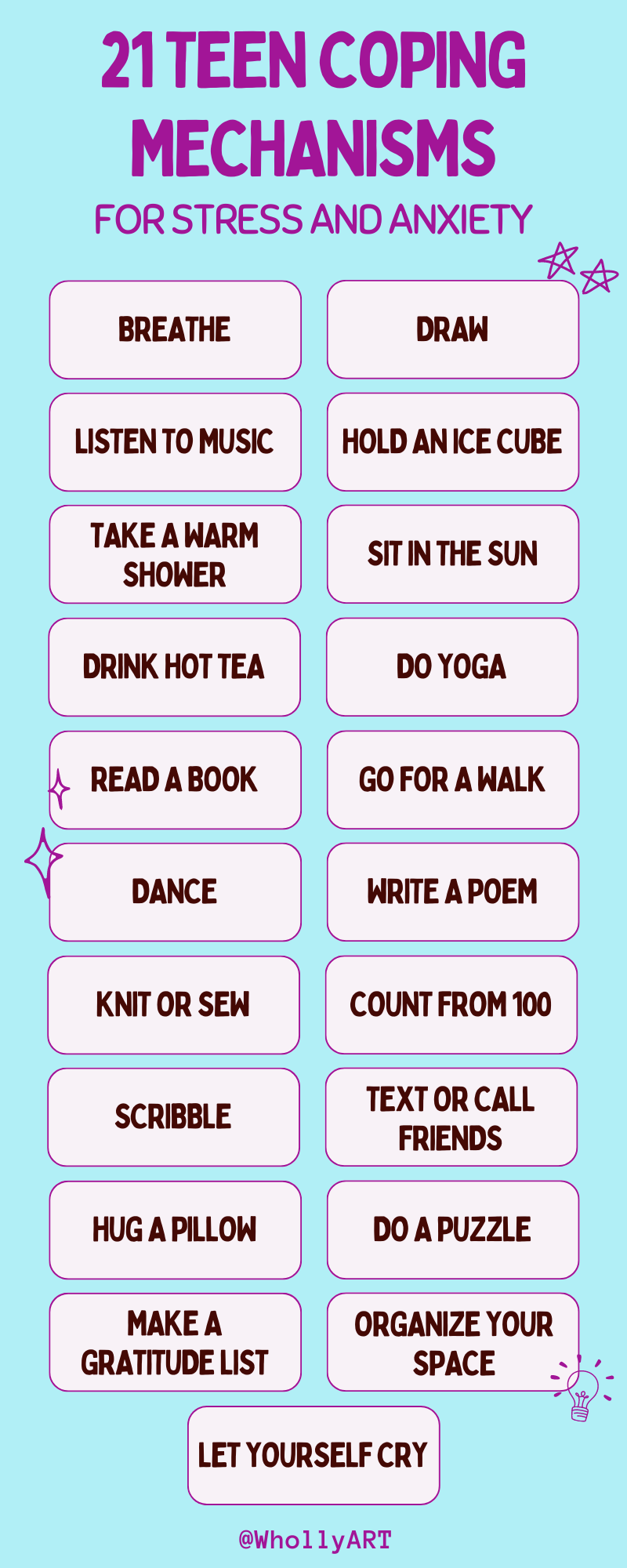
Remember that it takes time, energy, and consistency to set coping skills that work. Your anxiety coping skills might not work right away, and that’s okay, as long as you keep putting the effort in, and work with parents or doctors as necessary, you’ll start to see results.
DOWNLOAD the 21 Coping Mechanisms here
Patience is key as you use these simple worksheets to face and work through the many difficult emotions that you’re experiencing in and out of school.
As I’ve learned to give myself grace and understanding, I’ve found the skills I needed to reduce and manage my anxiety. I know you can do it, too!
What else helps you combat stress and anxiety during the school year?
Elisha
